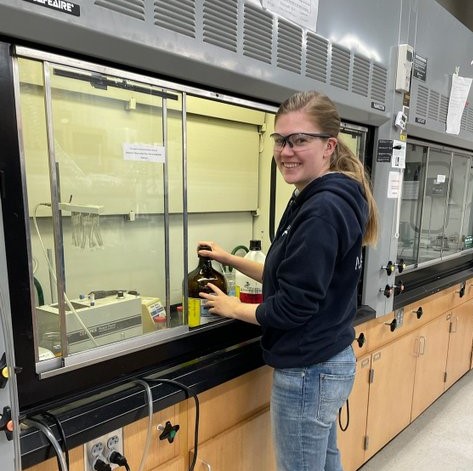Grupstra, C. G. B., Howe-Kerr, L. I., van der Meulen, J. A., Veglia, A. J., Coy, S. R., & Correa, A. M. S. (2023). Consumer feces impact coral health in guild-specific ways. Frontiers in Marine Science, 10. https://www.frontiersin.org/articles/10.3389/fmars.2023.1110346
Coral Reef Fishes

Coral reefs are teeming with fishes from clownfish (like Nemo) to surgeonfish (like Dory) to parrotfish. These species can be categorized by what they eat. Corallivores eat coral while grazers eat plants and algae. There are even some fishes that eat dead material, known as detritivores. However, once they’ve finished these diverse meals, things get more complicated. Just like us, fish have to poop out the remnants of their food. Since fish don’t have access to toilets, instead their poop gets reincorporated into the environment, with high fish densities resulting in a “persistent rain of feces” containing bacteria, sand, and microbes. A group of scientists looked at how fish poop can help or hinder coral on reefs.
Pros of Poop
Fish feces can contain probiotics, helpful bacteria similar to what’s found in yogurt or the algae that live inside coral tissues (these algae give coral their colors). When the fish poop, they spread these tiny organisms around and help coral reefs. Since coral are sedentary creatures they need other species, like fish, to spread beneficial microbes. However, this can also cause coral lesions by scratching the coral or introducing pathogens, infecting the coral with disease. The scientists looked at feces from a butterflyfish (corallivore) and a surgeonfish (grazer/detritivore). To examine the different impacts of each species, samples of the poop from both were sterilized to kill off any microbes. Then cauliflower coral (Pocillopora meandrina) was exposed to both sterilized and untreated (or fresh) fish feces. After, the scientists looked at coral tissues under a microscope and measured how well the coral was photosynthesizing to assess coral health. The team of scientists discovered when coral-eating fish poop, they spread good bacteria and improved the health of the coral. Meanwhile, the fresh grazer/detritivore poop caused more than four times as many lesions on the coral compared to sterilized grazer/detritivore poop, demonstrating the grazer/detritivore’ fecal microbes were damaging to the reef’s health. The scientists concluded that the affect of fish poop on coral is strongly influenced by those fishes’ diets.
The ornate butterfly fish (left, photo by Francois Libert) eats coral, while the striated surgeonfish (right, photo by Bernard DuPont) likes to graze on algae and dead plant material.
Future Impacts
It is estimated that a quarter of all marine life, including over 4,000 known species of fish depend on coral reefs. This includes over 4,000 known species of fish. Each fish species has different eating and pooping habits, and these have profound impacts on the reef around their environment. While this study only focused on two species of fish and one species of coral, it begs the question: How would the removal of a fish species impact a reef? Every year thousands of species go extinct as humans continue to exert pressure on marine ecosystems through over fishing and climate change. Without these fish and their feces, what would happen? To protect the reefs and the environment we need to consider all the small elements that impact reef health, even poop, when enacting legislation and changes in our everyday lives.

While I have never lived close to the ocean (Minnesota, Arizona, and now Central New York), it has always had a special place in my heart. I recently earned my PhD in environmental chemistry from the State University of New York College of Environmental Science and Forestry (SUNY-ESF) studying reef and coastal biogeochemistry. I focus on the lipid and trace metal composition of settling particles and surface sediment in coastal systems, primarily studying coral reefs. When not diving or in the lab you can find me hiking with my dogs, reading, cross stitching, or just enjoying a good cup of tea!



